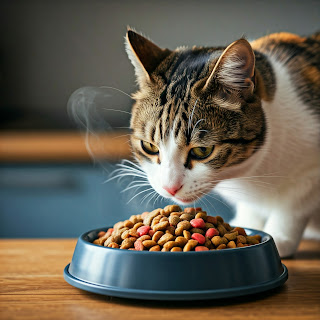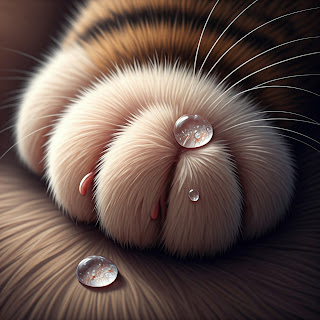Why Do Cats Smell So Good? The Secret Behind That Feline Freshness
Have you ever snuggled up with your cat and noticed they smell divine? Whether it’s a hint of warm sunshine, fresh laundry, or just a unique feline aroma, cats seem to have an irresistible scent that cat lovers adore. But what makes them smell so good? Let’s uncover the mystery behind your cat’s delightful fragrance.
1. Nature’s Groomers: Cats Are Clean Machines
Cats are meticulous groomers, spending up to 50% of their waking hours licking and cleaning themselves. Their rough tongues are equipped with tiny, comb-like structures called papillae that help remove dirt, distribute oils, and keep their fur sleek and clean. This self-care routine not only keeps them looking pristine but also helps maintain that signature fresh scent.
2. Natural Oils: The Secret to Silky Fur
Your cat’s skin produces natural oils that coat their fur, providing a subtle, pleasant aroma. These oils serve as a protective barrier, keeping their coat healthy and shiny. Unlike dogs, cats don’t have a strong odor because their grooming habits regulate the oils, preventing any buildup that might lead to unpleasant smells.
3. Diet and Digestion Play a Role
A cat’s diet significantly impacts their overall smell. High-quality, protein-rich diets promote a healthy digestive system and contribute to their natural fragrance. Cats with a balanced diet are less likely to develop bad breath or unpleasant body odors, making them all the more cuddle-worthy.
4. Their Unique Body Chemistry
Every cat has a distinct scent, thanks to their unique body chemistry. This individual aroma is influenced by factors like genetics, environment, and even their level of activity. The good news? Most cats emit a light, comforting scent that we can’t get enough of.
5. Clean Living Environments
Cats are naturally fastidious creatures, and they prefer clean spaces. A tidy litter box, fresh bedding, and a dust-free home environment contribute to their overall cleanliness. Your efforts to maintain a clean home amplify your cat’s natural, pleasant aroma.
6. Minimal Sweat and No Overactive Glands
Unlike humans, cats have very few sweat glands, and the ones they do have are located on their paws. This limited sweating reduces the likelihood of body odor. Additionally, cats don’t have overactive sebaceous glands, further contributing to their odor-free allure.
When to Be Concerned About a Cat’s Smell
While most cats smell naturally wonderful, a sudden change in odor might indicate health issues. Common concerns include:
- Dental Problems: Bad breath could signal dental disease or oral infections.
- Skin Conditions: Unpleasant odors might result from skin infections or allergies.
- Ear Issues: A foul smell around the ears could indicate an infection or mites.
- Illness or Diet Changes: A drastic shift in diet or underlying health problems may alter their natural scent.
If your cat’s smell changes suddenly or becomes unpleasant, it’s best to consult a vet for advice.
The Purr-fect Takeaway
Cats smell good because they are self-cleaning, produce balanced natural oils, and lead clean, healthy lifestyles. Their pleasant scent is a combination of good hygiene, a balanced diet, and their unique body chemistry.
So, the next time you bury your face in your cat’s fur and inhale that wonderful aroma, remember—it’s all part of their charm! Share the feline love and let others know just how delightful cats truly are.
For more fascinating cat facts and care tips, visit CatnadoCat! 🐾











